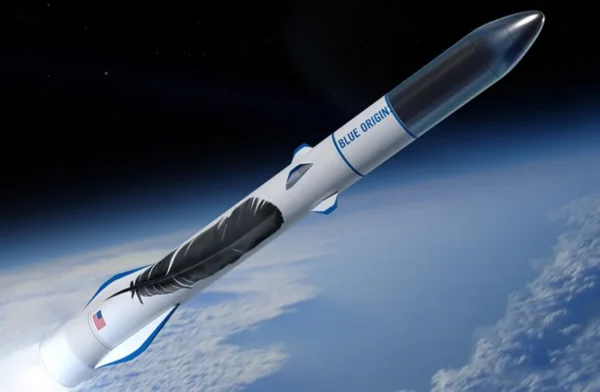Blue Origin, the private aerospace company founded by Jeff Bezos, has announced a significant reduction in its workforce, cutting approximately 10% of its employees, which amounts to around 1,000 jobs.
The move comes as part of an internal restructuring effort aimed at improving operational efficiency and streamlining management.
Reasons Behind the Layoffs
Blue Origin’s CEO, Dave Limp, cited the company’s rapid expansion in recent years as a key factor leading to increased bureaucracy and inefficiencies.
In a memo to employees, Limp acknowledged that while Blue Origin has made significant advancements in space exploration and launch technologies, it now needs to refocus on core priorities to remain competitive in the commercial space sector.
The layoffs will primarily affect roles in engineering, project management, and research and development.
However, the company emphasized that it remains committed to its long-term goals, including the development of its New Glenn rocket, the expansion of its lunar lander program, and its ongoing support for NASA and commercial spaceflight initiatives.
Implications for Blue Origin’s Future
The decision to cut staff comes at a pivotal time for Blue Origin as it competes with other private space companies like SpaceX, which continues to lead in reusable rocket technology and space launch services.
Despite these challenges, Blue Origin has ambitious plans, including increasing the launch frequency of its New Shepard and New Glenn rockets and further developing its partnerships with NASA and international space agencies.
Industry analysts suggest that while the layoffs indicate a course correction, they may also help Blue Origin accelerate its most critical projects by reducing internal inefficiencies.
With competition in the space sector heating up, companies are under pressure to deliver results quickly and efficiently. Blue Origin’s restructuring suggests a strategic realignment to focus on its most promising ventures while ensuring financial sustainability.
Reactions from Employees and the Industry
Reports indicate mixed reactions among employees, with some expressing disappointment over the sudden job losses, while others acknowledge the necessity of the move to ensure the company’s long-term viability.
The aerospace and defense sector has seen similar restructuring efforts in recent years, with companies adapting to the fast-changing dynamics of space exploration and commercial launch services.
Industry experts believe that this move signals a critical shift in Blue Origin’s approach. “This is not necessarily a sign of trouble, but rather a strategic maneuver to sharpen their focus on core projects,” said an aerospace industry analyst.
“The space race is more competitive than ever, and Blue Origin needs to be more agile to keep up.”
What’s Next for Blue Origin?
Despite the job cuts, Blue Origin remains optimistic about its future. The company is pushing forward with several key initiatives, including the deployment of its New Glenn heavy-lift rocket, which is expected to play a crucial role in upcoming missions.
Additionally, its involvement in NASA’s Artemis program and efforts to develop a lunar lander for future moon missions signal continued investment in long-term projects.
The layoffs may mark a turning point for Blue Origin, prompting a more streamlined and goal-oriented approach as it seeks to establish itself as a dominant player in the commercial space industry.
Whether this strategy will pay off remains to be seen, but one thing is certain—Blue Origin is making bold moves to secure its place in the future of space exploration.
Also Read
